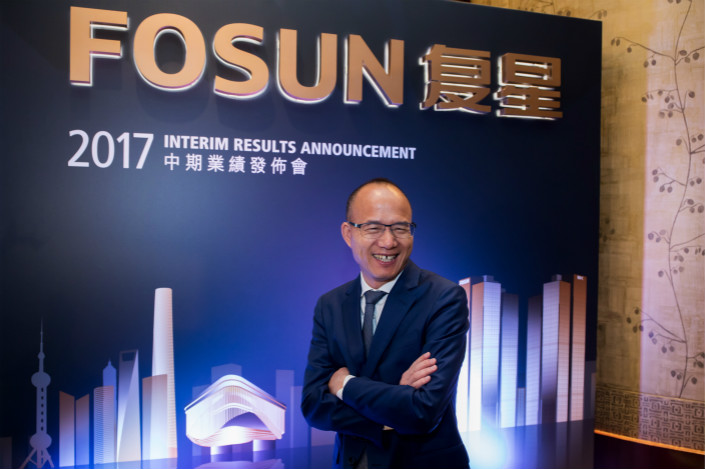Fosun Pharma Swallows Bitter Pill of Slowest Profit Growth in Four Years

Chinese pharmaceutical giant Shanghai Fosun Pharmaceutical (Group) Co. Ltd. saw its profit increase 11.4% to 3.1 billion yuan ($494 million) last year, the weakest growth in four years.
Although profit growth has slowed every year since 2015, the company achieved strong growth in revenue, with a total income of 18.5 billion yuan in 2017, up by 26.7% from a year earlier — the fastest growth since 2013.
Revenue from drug production, which accounted for more than 70% of total income, increased by 28.6%, faster than that for medical services and medical devices — Fosun Pharma’s two other key businesses, which achieved annual growth of 24.5% and 20.7% respectively.
Coinciding with the earnings report was the resignation of Guo Guangchang as the firm’s nonexecutive director and a member of the Strategic Committee. Guo, a co-founder and the chairman of Fosun Pharma’s parent, Fosun Group, will focus on the latter, which has become a multisector conglomerate through years of mergers and acquisitions.
Guo has shed his duties at several Fosun subsidiaries in recent months, including the chairmanship of Fosun’s tech unit and as the legal representative of an investment arm.
The earnings sheet and personnel change, disclosed on Tuesday, saw Fosun Pharma’s Hong Kong-listed shares drop 1.19% on the same day, while its Shanghai-listed shares declined 1.68%.
In 1992, Guo founded Fosun Group with several other alumni of Shanghai’s prestigious Fudan University. The firm started as a technology consultancy and entered the pharmaceutical business two years later. After making heavy investment in research and acquisition, the drug unit has become Fosun’s key arm, with an international portfolio.
Some of Fosun Pharma’s key overseas assets include Israeli medical-device-maker Sisram Medical; Sweden’s Breas Medical Group, which makes home-care ventilation and sleep apnea devices; and Indian injection developer Gland Pharma.
It acquired Sisram in 2013 and made it the first Israeli firm to list in Hong Kong last year. Gland Pharma, of which Fosun acquired 74% for $1.1 billion last year, has been the largest overseas investment by a Chinese firm in the pharmaceutical sector.
In 2017, Fosun Pharma also acquired French drug distributor Triddem Pharma to further expand into Europe as well as French-speaking African countries.
The deals have helped raised the company’s asset-liability ratio to 52% by the end of 2017, from 42.3% a year before.
It said in the earnings report that the firm had a “mature logic” in selecting acquisition targets, and integrates itself with the purchased firms for research, production, sales and services.
Contact reporter Coco Feng (renkefeng@caixin.com)

- 1China Officials Dismiss Tax Hike Rumors After Tech Selloff
- 2Cover Story: How Gutter Oil Became a Prized Fuel for International Airlines
- 3Maersk Unit Takes Over CK Hutchison Panama Ports After Court Ruling
- 4Prominent Chinese Journalist Liu Hu Detained by Police in Chengdu
- 5China Provinces Set Cautious 2026 Growth Targets
- 1Power To The People: Pintec Serves A Booming Consumer Class
- 2Largest hotel group in Europe accepts UnionPay
- 3UnionPay mobile QuickPass debuts in Hong Kong
- 4UnionPay International launches premium catering privilege U Dining Collection
- 5UnionPay International’s U Plan has covered over 1600 stores overseas






